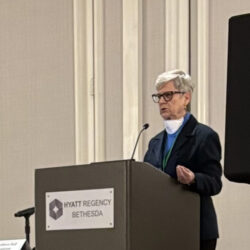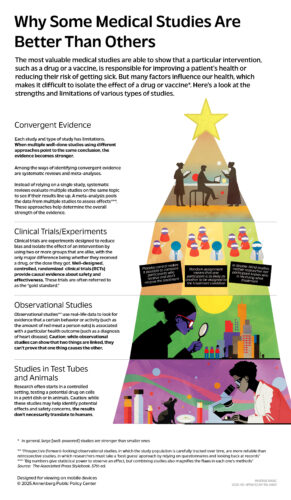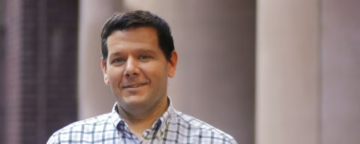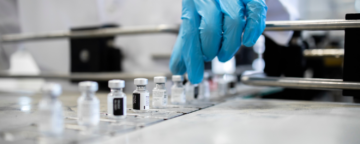Annenberg Public Policy Center Director Kathleen Hall Jamieson has been honored with the American Association for the Advancement of Science’s William D. Carey Lectureship Award for Leadership in Science Policy. Jamieson delivered the 2025 Carey Lecture at the 49th Annual AAAS Forum on Science and Technology Policy in Bethesda, Md., on Oct. 23.
Jamieson’s presentation, “Preempting public misconceptions about science” urged scientists and science communicators to stop being reactive in seeking to correct misinformation and, instead, seek to proactively preempt misinformation by using a “mental models” approach.

Such an approach, Jamieson said, entails exposing people to visual, verbal, or animated models to teach them about science and medicine so that when they later encounter consequential misconceptions, they already have the tools in place to recognize and identify them as such. In short, she said, a mental model approach can blunt misconceptions by a) modeling strength of evidence, b) modeling how the integrity of scientific knowledge is tested and protected, and c) modeling what science knows.
Jamieson offered examples that included a chart developed by FactCheck.org, a project of the Annenberg Public Policy Center, that graphically depicts the vaccine approval process used by the Food and Drug Administration (see it on FactCheck.org). Another graphic, developed by Zachary Reese at the policy center, explains the relative strength of different types of scientific evidence and “why some medical studies are better than others.” (See that graphic below.)
 A real-world application of the scientific evidence graphic, Jamieson noted, could help one make sense of an exchange between U.S. Sen. Bill Cassidy (R., La.), and Robert F. Kennedy Jr., at Kennedy’s nomination hearing on Feb. 4, 2025, to be secretary of Health and Human Services. Cassidy cited a meta-analysis showing that vaccines are not associated with autism. Kennedy, saying he’s going to be “an advocate for strong science,” cited an observational study of 47,000 9-year-olds in the Florida Medicaid system that he said “shows the opposite.”
A real-world application of the scientific evidence graphic, Jamieson noted, could help one make sense of an exchange between U.S. Sen. Bill Cassidy (R., La.), and Robert F. Kennedy Jr., at Kennedy’s nomination hearing on Feb. 4, 2025, to be secretary of Health and Human Services. Cassidy cited a meta-analysis showing that vaccines are not associated with autism. Kennedy, saying he’s going to be “an advocate for strong science,” cited an observational study of 47,000 9-year-olds in the Florida Medicaid system that he said “shows the opposite.”
Someone familiar with the strength of evidence chart, Jamieson said, would recognize that Cassidy was citing a meta-analysis of “convergent evidence,” the highest level of evidence, which in this case examined five separate studies involving a total of 1.2 million children. Kennedy referenced a single observational study, a much lower, weaker form of evidence. (FactCheck.org previously covered Kennedy’s citation of the “flawed paper,” which also has numerous methodological problems.)
Jamieson’s lecture drew on work that will be reported in the book “Safeguarding Science” (under contract with Oxford University Press), which she is co-authoring with Natalie Jomini Stroud, a professor in the Department of Communication Studies and the School of Journalism and Media in the Moody College of Communication in the University of Texas at Austin.
The AAAS Forum draws participants from government, academia, industry, and the science and engineering communities.
Jamieson, the Elizabeth Ware Packard Professor at the Annenberg School for Communication at the University of Pennsylvania, is a member of the Board of Directors of the AAAS and a member of the National Academy of Sciences. In 2020, the National Academy of Sciences awarded Jamieson its Public Welfare Medal for her “non-partisan crusade to ensure the integrity of facts in public discourse and development of the science of scientific communication to promote public understanding of complex issues.”
The Carey Lecture was created in 1989 by the AAAS board of directors. Past Carey Lecturers include former U.S. Energy Secretary Ernest J. Moniz, former AAAS CEO and former Rep. Rush Holt (D., N.J.), Nobel Prize-winning scientist Harold E. Varmus, molecular biologist Maxine Singer, and physicist and former Rensselaer Polytechnic Institute President Shirley Ann Jackson.
Photo credit on APPC home page by Daniel Soñé Photography and credit this page by Robert Jamieson.


